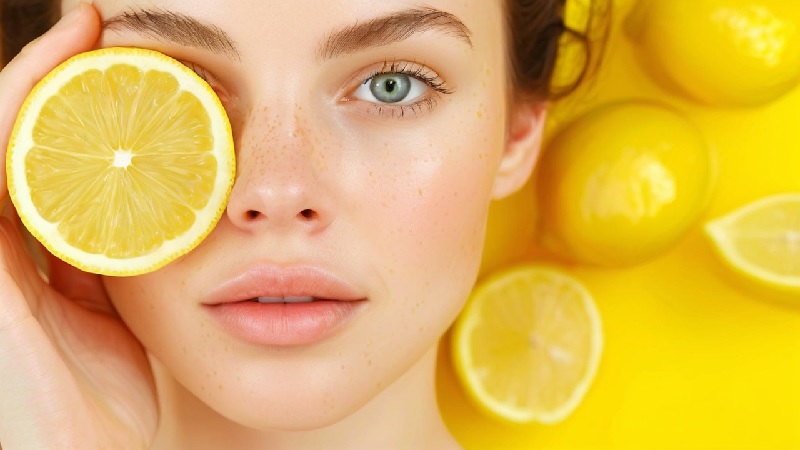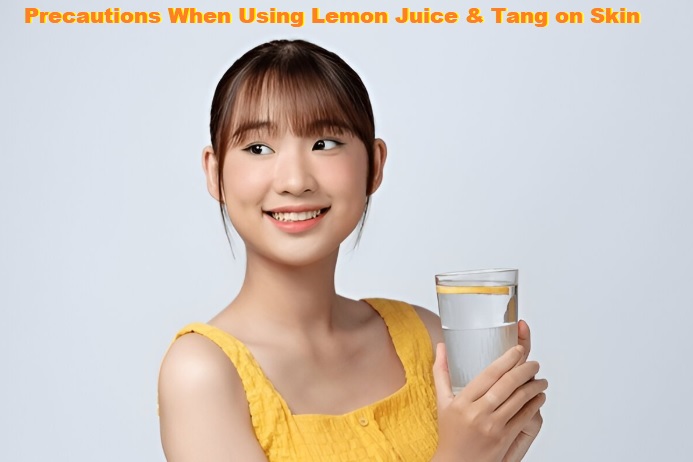Introduction: of WellHealthOrganic.Com: Remove Dark Spots on Face with Tang & Lemon Juice
Dark spots, also known as hyperpigmentation, could make your pores and skin look uneven. Tang and lemon juice are known for his or her pores and skin brightening and exfoliating residences. Lemon juice contains vitamin C and citric acid, which help lighten spots, whilst tang, a citrus based total powder, provides additional exfoliation.
This article will cover:
- Why dark spots arise
- How tang and lemon juice help take away dark spots
- Effective methods to apply these remedies
- Precautions to take while using them
- Other natural remedies for darkish spots
Table of Contents
Causes of Dark Spots on Face
Dark spots can seem due to numerous reasons, which include:
1. Sun Exposure
- Excessive UV rays cause melanin manufacturing, mainly due to pigmentation.
- Always use sunscreen (SPF 30 or better) to prevent sunspots.
2. Acne Scars
- Post inflammatory hyperpigmentation (PIH) causes darkish marks after it heals.
- Using herbal acids like lemon juice can help fade these scars.
3. Aging & Hormonal Changes
- Melasma happens due to hormonal fluctuations, commonplace in being pregnant.
- Aging slows down cellular turnover, mainly due to uneven pores and skin tone.
4. Pollution & Lifestyle Factors
- Toxins and free radicals cause oxidative pressure, darkening the pores and skin.
- Poor weight loss programs and loss of hydration contribute to dullness.
How Tang & Lemon Juice Help Remove Dark Spots

1. Benefits of Lemon Juice
- Rich in Vitamin C: Lightens dark spots by way of reducing melanin production.
- Natural Astringent: Shrinks pores and removes extra oil.
- Exfoliates Dead Skin: Citric acid helps cast off dead skin cells.
2. Benefits of Tang Powder
- Contains Vitamin C & Citric Acid: Enhances exfoliation and skin brightening.
- Acts as a Gentle Scrub: Removes dirt and impurities.
- Affordable & Easy to Use: Available in most families.
3. How They Work Together
- Lemon juice penetrates the pores and skin, lightening darkish spots.
- Tang powder acts as a physical exfoliant, disposing of useless skin layers.
- Together, they enhance collagen manufacturing and give a natural glow.
How to Use Tang & Lemon Juice for Dark Spot Removal
1. Tang & Lemon Juice Face Mask
Ingredients:
- 1 tablespoon tang powder
- 1 teaspoon fresh lemon juice
- 1 teaspoon honey (optionally available for hydration)
Steps:
- Mix all components into a smooth paste.
- Apply flippantly to dark spots or the entire face.
- Leave for 10-15 minutes.
- Rinse with lukewarm water and moisturize.
- Use two times a week for best results.
2. Tang & Lemon Exfoliating Scrub
Ingredients:
- 1 tablespoon tang powder
- 1 teaspoon lemon juice
- 1 teaspoon yogurt (for delivered exfoliation)
Steps:
- Mix the components nicely.
- Gently massage onto the pores and skin in round motions.
- Rinse off with cold water.
- Apply a moisturizer to keep away from dryness.
- Use it once a week to avoid irritation.
3. Tang & Lemon Spot Treatment
Ingredients:
- 1 teaspoon tang powder
- ½ teaspoon lemon juice
- A few drops of rose water
Steps:
- Mix and practice at once to darkish spots.
- Leave for 5-10 mins.
- Rinse and observe a light weight moisturizer.
- Use each trade day for targeted effects.
Precautions When Using Lemon Juice & Tang on Skin

While those ingredients are powerful, they ought to be used efficiently to avoid infection.
1. Always Dilute Lemon Juice
- Pure lemon juice is acidic and can cause redness and infection.
- Always mix it with honey, yogurt, or rose water.
2. Do a Patch Test
- Apply a small quantity on your wrist or in the back of the ear to test for sensitivity.
3. Avoid Sun Exposure
- Lemon juice makes pores and skin sensitive to sunlight.
- Apply at night time or usually put on sunscreen throughout the day.
4. Moisturize After Use
- Lemon juice can dry out the skin, so constantly use a mild moisturizer.
5. Do Not Overuse
- Using too regularly can lead to pores and skin inflammation and peeling.
- Limit to 2-3 instances in a week.
Other Natural Remedies for Dark Spots
If you want to explore different remedies, try those natural alternatives:
1. Aloe Vera Gel
- Hydrates and soothes the skin.
- Helps fade pigmentation and scars.
2. Turmeric & Milk
- Curcumin in turmeric reduces melanin production.
- Lactic acid in milk exfoliates dead pores and skin cells.
3. Apple Cider Vinegar (ACV) & Water
- Balances skin pH and eliminates darkish spots.
- Use diluted ACV as a toner.
4. Papaya & Honey Mask
- Papaya carries enzymes that destroy down pigmentation.
- Honey nourishes and hydrates the pores and skin.
Summary
Dark spots on the face may be due to sun publicity, pimples scars, ageing, and hyperpigmentation. Natural treatments like tang and lemon juice help lighten those spots effectively. This article explores how to use tang and lemon juice, their blessings, precautions, and extra skin care recommendations for a clean, sparkling complexion.
FAQs
Q. Can lemon juice eliminate darkish spots in a single day?
Ans. No, lemon juice works gradually. Visible outcomes may also take 2-4 weeks with normal use.
Q. Is tang powder secure for all skin sorts?
Ans. Tang is safe for maximum pores and skin kinds, however touchy pores and skin users ought to do a patch check first.
Q. How regularly should I observe lemon juice on my face?
Ans. Limit usage to 2-3 times consistent with week to prevent infection.
Q. Can I leave lemon juice on my face in a single day?
Ans. No, leaving lemon juice overnight can also cause infection and dryness. Rinse after 10-15 minutes.
Q. Does lemon juice make pores and skin sensitive to daylight?
Ans. Yes, usually apply sunscreen after the usage of lemon juice to save you sun harm.
Q. Can I blend lemon juice with different ingredients for higher results?
Ans. Yes, combining lemon juice with honey, yogurt, or aloe vera complements its advantages even as lowering irritation.
Q. How lengthy does it take for dark spots to fade?
Ans. With consistent use, you could see seven enhancements in 2-6 weeks.
Disclaimer: This article is for informational functions most effective. Results may range primarily based on man or woman skin type. Consult a dermatologist earlier than the use of any new treatment, in particular if you have touchy or allergic reaction prone pores and skin. The facts right here aren’t an alternative choice to professional medical recommendation.

